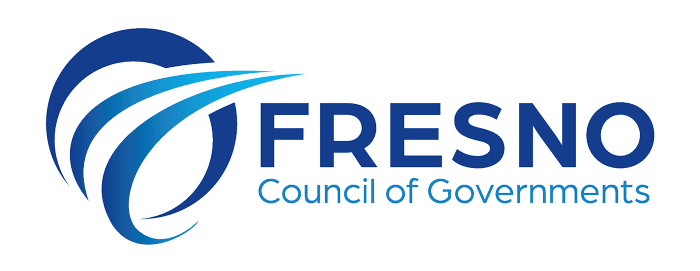Summary:
CalVans Financial Condition Report
As of June 30, 2024
Background
The CalVans Joint Powers Authority (JPA) was established in 2011 to provide farmworker and commuter vanpool services across a broad region of California. Membership has grown to include:
- Association of Monterey Bay Area Governments
- Fresno Council of Governments (FCOG)
- Imperial County Transportation Commission
- Kings County Association of Governments (KCAG)
- Madera County Transportation Commission
- Merced Association of Governments
- Riverside Transportation Commission
- Tulare County Association of Governments
- San Joaquin Council of Governments
- Stanislaus Council of Governments
- Ventura Transportation Commission
- Santa Barbara County Association of Governments
CalVans originated in Kings County, with KCAG and the County providing office space, vehicle yards, staffing, and substantial funding for initial vehicles and equipment. FCOG and FCRTA also contributed significantly to the startup fleet, which has since been fully depreciated and retired.
Revenue Overview
CalVans’ primary revenue source is vanpool fare collection. In FY 2024, fare revenue accounted for 92.4% of total revenues, totaling $13.7 million. While fare revenue is intended to cover all operational costs, complexities in accounting for leased vehicles suggest the agency may not be fully recapturing the capital cost of its fleet.
Historical Financial Challenges
From its inception, CalVans faced recurring cash flow issues. Early efforts to secure Federal Transit Administration apportionments from member agencies were unsuccessful, as those funds were already committed to local transit services. A 2015 attempt by then-State Controller Betty Yee to revise the State Transit Assistance formula to include CalVans was ultimately blocked by major transit operators.
To manage seasonal cash flow fluctuations, CalVans entered into lease-back arrangements with Merchants Leasing Bank in 2018 and again in 2020. These provided short-term relief but led to unsustainable debt levels. In response, a Financial Committee was formed, resulting in budget workshops, personnel reductions, salary cuts, and fare increases. The fallout included KCAG’s withdrawal from the JPA on June 6, 2023, a significant loss given its foundational role.
Audit and Debt Resolution
In August 2022, CalVans retained Price Page & Company to complete the FY 2019–2022 audits left unfinished by the prior auditor. Jaribu W. Nelson , CPA provided the FY 2023-2024 audit however, CalVans continues to use Price Page in an advisory role. As of June 2025, all outstanding loans have been paid off.
Impact of KCAG Withdrawal
KCAG’s exit created operational constraints, including the loss of economies of scale in facility leasing and employee benefits tied to Kings County. Although CalVans secured a $15 million Prop 4 grant, the funds are contingent on state budget appropriation, with the earliest availability projected for FY 2026–27. In the interim, cash flow remains a concern, as reflected in the “going concern” note in the June 30, 2024, audited financial statements.
Net Position Decline
A review of audited financials shows a steep decline in CalVans’ net position:
| Fiscal Year |
Net Position |
Unrestricted Fund Balance |
| 06/30/2020 |
$4,306,244 |
$1,881,431 |
| 06/30/2024 |
$43,920 |
($161,432) |
While the operating budget appears balanced, depreciation expenses—unaccounted for in fare structures—have eroded the unrestricted fund balance. However, materially increasing fares to cover capital cost has a significant impact on ridership.
Response to Financial Concerns
In response to the going concern finding, CalVans initiated several corrective actions:
- Fare Increase: Effective May 1, 2025, projected to generate $500,000
- Vehicle Sale: Proposed sale of 150 vehicles, expected to yield $750,000
- Captive Insurance: Agreement with American Sterling Insurance Agency; CalVans formed Tenet Assurance in Arizona in December 2024 but maintains 5 layers of commercial insurance covering $10 million in general liability
- Strategic Planning: On June 12, 2025, Resolution 2025-007 approved hiring Nag Consulting Services to develop a strategic plan for Prop 4 funds and broader agency sustainability
- Leadership Transition: Cooperative Personnel Service was retained after the KCAG withdrawal and quotes were secured to determine costs to recruit a new Executive Director and potentially a Finance Director, as the current Executive Director prepares to step down after 15 years
FY 2025/26 Budget Assumptions (Resolution 2025-006)
- Prop 4 funds will not be available until FY 2026/27
- Fare increase and vehicle sale will offset current year depreciation ($1,183,091 in 2024)
- Insurance rates have been reduced slightly for 2025
- Fuel and oil costs are expected to decrease
- Leasing costs will rise if new vehicle acquisition occur in future
Current Financial Status
CalVans has operated for almost 18 months since the June 30, 2024, financial statements were issued. While the fare increase, vehicle sales, and insurance restructuring are expected to stabilize cash flow, the unaudited trial balance as of June 30, 2025, shows a cash balance of $104,287, down from $1,457,315 the previous year.
The August 14, 2025, board agenda includes unaudited financial reports for FY 2024/25, indicating either a $78,589 loss or a $220,815 gain, depending on adjustments. Staff continues to manage situational cash flow challenges, and monthly board agendas include unaudited trial balances and three-year budget comparisons. While Price Page contributes to these reports, historical comparisons show that CPA audits introduce significant technical adjustments—particularly depreciation—which are not reflected in CalVans accounting staff budget tracking.
Action: Information. The Policy Board may provide additional direction at its discretion.


